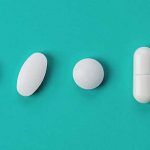How Long Does Hydrocodone Stay In Your System?
- How Long Does Hydrocodone Stay In Your Body?
- Factors That Affect How Long Hydrocodone Stays In Your System
- Drug Testing & Detection Times
- Urine Tests
- Hair Tests
- Blood Tests
- Saliva Tests
Hydrocodone is a prescription opioid drug. It’s classified as a Schedule II controlled substance due to its high potential for abuse and addiction.
When prescribed, it’s used to treat severe pain and found in Vicodin, Lortab, and Norco.
How long hydrocodone stays in your system depends on a number of factors and may not be the same for everyone. On average, and depending on the type of drug test used, hydrocodone can be detected in your system for up to four days after last use.
How Long Does Hydrocodone Stay In Your Body?
Hydrocodone has a half-life of about 3.8 hours. This means that, once in your digestive system, the prescription drug needs 3.8 hours before half of the standard dose exits your system. It would take about 7 hours for a whole dose to leave your body.
That said, several factors can affect exactly how long this pain medication stays in the system.
Factors That Affect How Long Hydrocodone Stays In Your System
The length of time hydrocodone stays in the body can change depending on a number of factors including:
- age
- genetics
- dose of hydrocodone
- kidney and liver function
- frequency of use
- body fat
- body composition
Hydrocodone Drug Testing & Detection Times
Multiple drug tests can detect hydrocodone (and other opiates) in the system.
Urine Tests
Urine tests are the most common way to detect hydrocodone and can determine if someone has used the drug in the last 2-4 days. These tests can also detect one of hydrocodone’s metabolites, norhydrocodone, up to 3 days after use.
Hair Test
A hair follicle test may be used to detect hydrocodone in some cases, especially if someone is looking for long-term hydrocodone use. A half-inch hair sample can detect hydrocodone for up to 90 days after the last dose.
Blood test
With a blood test, hydrocodone is detectable for up to 24 hours after the last dose.
Saliva Test
Saliva is rarely used to test for hydrocodone. This is because hydrocodone can only be detected 12-36 hours after the last dose.
Side Effects Of Hydrocodone Use
Once hydrocodone makes it to your brain, it attaches to the opioid receptors, and only then do you really begin to feel its effects. But pain relief isn’t the only response it can cause in the body. It also has many side effects.
These side effects can range from mild to more severe if the drug is misused. Some of the most common side effects of hydrocodone include:
- dry mouth
- constipation
- drowsiness
- loss of appetite
- headache
- constipation
- muscle tightening
- trouble falling or staying asleep
- fever
Hydrocodone Withdrawal Symptoms
Trying to quit hydrocodone after you’ve taken it for a while can create symptoms just as serious as the ones that occur when taking the drug.
If you’ve taken hydrocodone in high doses and/or over a long period of time, it’s likely your body has built up a dependence on the drug. Once that occurs and you stop taking hydrocodone, withdrawal symptoms are likely to occur.
Withdrawal symptoms may include:
- muscle aches
- runny nose
- nausea/vomiting
- chills
- diarrhea
- irregular heart rate
- irritability/restlessness
- mental health issues
- night sweats
- fatigue
- high blood pressure
- drug cravings
- thoughts of suicide
Because of the seriousness of these symptoms, it’s important not to quit hydrocodone on your own. Speaking to your doctor, or joining a detox program where a healthcare professional oversees your withdrawal, is likely recommended.
Treatment For Hydrocodone Addiction
If you or a loved one lives with opioid addiction or another form of substance abuse, you don’t have to deal with it alone.
Northeast Addiction Treatment Center offers several outpatient services including intensive outpatient programs, partial hospitalization programs, and medication-assisted treatment.
To learn more, please call our helpline today.
Sources
Written by
Northeast Addition Editorial Team
©2024 Northeast Addition Center | All Rights Reserved
This page does not provide medical advice.





